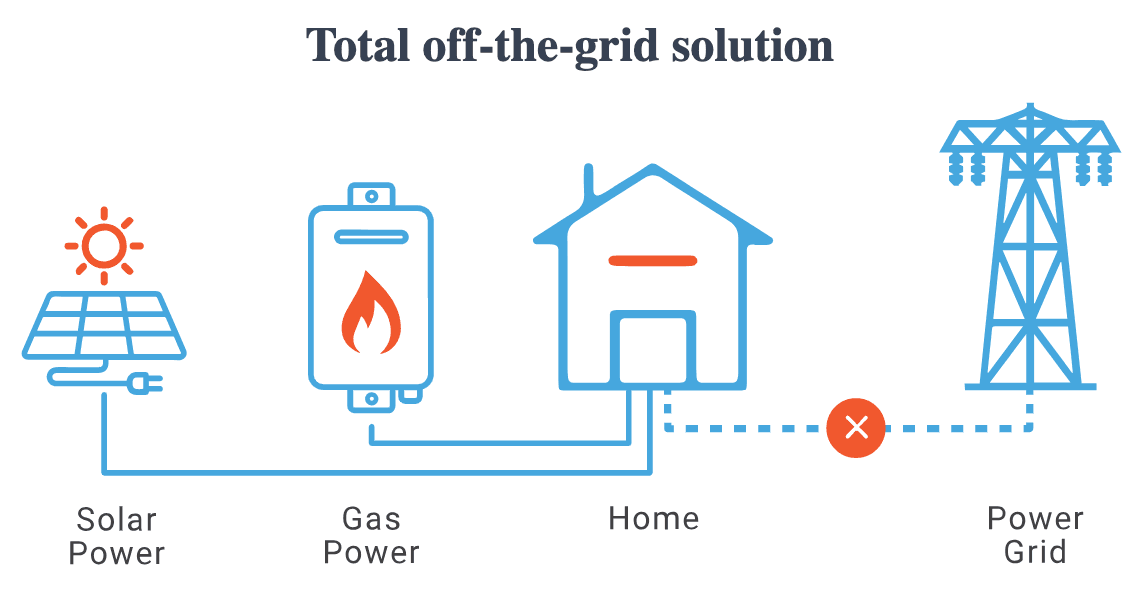Making the Case for Gas Geysers over Expanding Solar PV Systems

Submitted: Tuesday, February 20th, 2024
Original Article: Link
Making the Case for Gas Geysers over Expanding Solar PV Systems
As the world increasingly turns towards renewable energy sources, the debate over whether to invest in expanding solar photovoltaic (PV) systems or adopting alternative technologies like gas geysers becomes more prominent. While solar power has undeniable environmental benefits, the decision to expand a solar PV system versus investing in a gas geyser depends on various factors including cost-effectiveness, energy efficiency, and practicality.
In this article, we explore why investing in a gas geyser may sometimes be a more advantageous choice than expanding an existing solar PV system.
- Initial cost: Gas geysers generally have a lower initial cost compared to expanding a solar PV system. While solar panels and associated equipment can be expensive to purchase and install, gas geysers often have a more affordable upfront cost, making them an attractive option for those looking to minimize initial investment.
- Installations and maintenance: Gas geysers are typically easier and quicker to install compared to expanding a solar PV system. Solar panel installation requires careful positioning, wiring, and connection to the electrical grid, which can be labor-intensive and may require professional expertise. Gas geysers, on the other hand, usually involve simpler installation procedures and have lower maintenance requirements, reducing long-term hassle and costs for homeowners.
- Energy Efficiency: Gas geysers are known for their energy efficiency and quick heating capabilities. Unlike solar PV systems, which rely on sunlight availability and may experience fluctuations in energy production depending on weather conditions, gas geysers can provide consistent hot water supply regardless of external factors. This reliability makes gas geysers particularly appealing for households with high hot water usage or those located in areas with limited sunlight exposure.
- Energy Independence: While solar PV systems contribute to energy independence by harnessing renewable energy sources, gas geysers offer an alternative means of reducing reliance on the electrical grid. In regions where electricity supply is inconsistent or prone to outages, having a gas geyser ensures continuous access to hot water without being solely dependent on solar-generated electricity.
- Space Considerations: Expanding a solar PV system may require additional roof space or ground area for installing new solar panels, which may not be feasible for all homeowners due to structural limitations or aesthetic concerns. Gas geysers, on the other hand, typically have smaller physical footprints and can be installed in compact spaces, making them a more practical option for homes with limited available space.
Why choose switching to a gas geyser?
In conclusion, while expanding solar PV systems remains a valuable investment for reducing carbon footprint and long-term energy savings, gas geysers offer distinct advantages in terms of affordability, installation simplicity, energy efficiency, reliability, and space considerations. Ultimately, the decision between investing in a gas geyser and expanding a solar PV system depends on individual circumstances, energy needs, and budget constraints. By weighing the pros and cons of each option, homeowners can make informed choices that align with their specific requirements and preferences.
Did we spark your interest and are YOU looking for a gas geyser installation? Then answer a couple of questions and get a Quote here!
Fast, reliable, and professional service—hot water made easy! Looking for the best hot water solution? Check out our unbeatable packages and start saving today!

